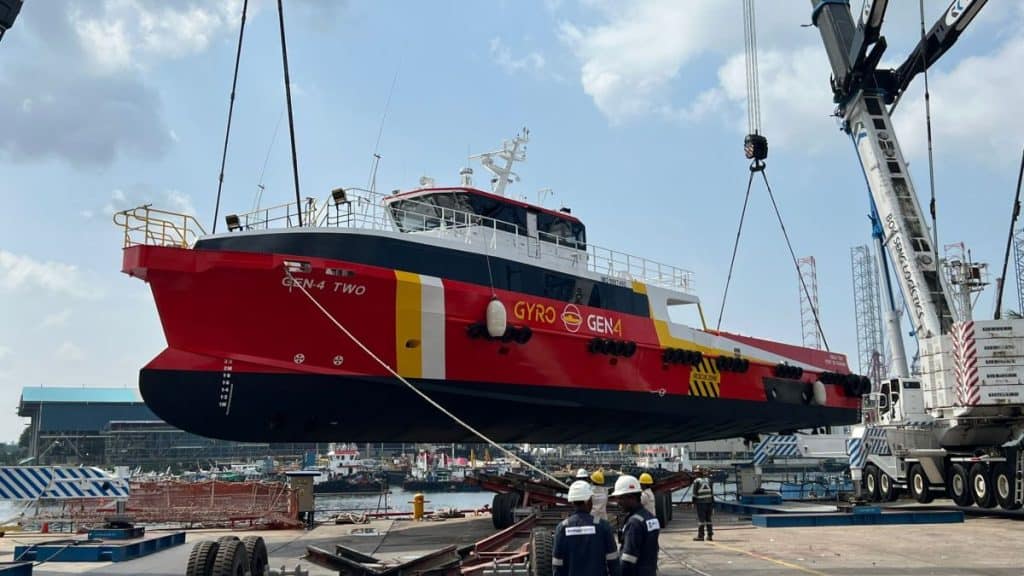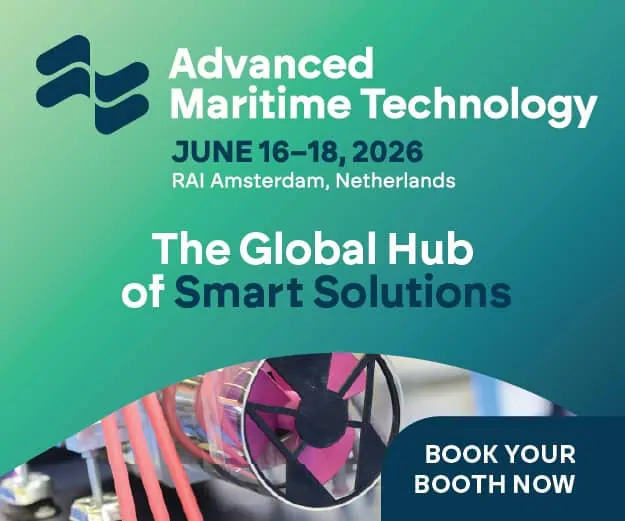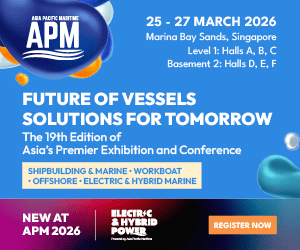Strategic Marine has commissioned an emissions study to validate greenhouse gas emissions reduction using the Sea Forrest Green Cabin Energy Saving System, its latest system in collaboration with Sea Forrest.
Sea Forrest was incorporated in 2011 as a marine and offshore project management company and has evolved to delivering sustainable and decarbonization solutions to customers worldwide. Today, Sea Forrest specialises in delivering energy management solutions through marine electric and hybrid propulsion, marine charging, and marine energy storage systems. Sea Forrest was acquired by BH Global Corporation in 2021.
The deployment of Green Cabin Energy Saving System marks the first time such a system is being used onboard Fast Crew Boats (FCBs).
The Green Cabin Energy Saving System is a hybrid solution where an energy storage system captures and harnesses energy generated by the main engines to utilise for various applications on the vessel, such as the hotel load.
The study conducted by the Maritime Energy and Sustainable Development Centre of Excellence (MESD CoE) at Nanyang Technological University, Singapore (NTU Singapore) will assess the system’s carbon mitigation potential based on different scenarios and provide recommendations to improve its effectiveness.
A signing ceremony was held on Thursday (10 Aug) to launch the study, the second commissioned by Strategic Marine and conducted by MESD CoE.
Chan Eng Yew, Chief Executive Officer, Strategic Marine, said: “We are excited to present our latest decarbonisation solution and very excited to commission a second study with NTU’s Maritime Energy and Sustainable Development Centre of Excellence to better understand how and when the system offers benefits.”
Professor Chan Siew Hwa, Deputy Centre Director, MESD CoE, NTU Singapore, said: “We are delighted that Strategic Marine has chosen to engage MESD CoE again to conduct energy and emission performance measurements onboard. We are grateful for their continued trust in our expertise, and eagerly look forward to fortifying our partnership in this field to actively contribute to maritime decarbonisation.
Green solutions for future needs
As the Singapore-based specialist aluminum shipbuilder continues plans to push ahead with green solutions to meet clients’ needs, the incorporation of emissions reduction systems into its products will boost its competitiveness in markets where green requirements are increasingly stringent.
A previous study with MESD CoE compared the efficiency of traditional diesel-powered and hybrid-powered crew transfer vessels (CTVs). Both vessel types are generally deployed outside Singapore to support the offshore markets and wind farms.
By optimising the engine’s operating parameters, such as load and speed, the system can potentially reduce fuel consumption and lower emissions, contributing to more sustainable and environmentally friendly operation of the FCB.
This is done by aligning these parameters with the vessel’s optimal efficiency range, maximising fuel use and minimising energy waste.

Emissions study
The newly commissioned study will include data collected from actual sea trials carried out on a FCB that is scheduled to be delivered in the third quarter and deployed in Southeast Asian waters.
The system has the advantage of reducing the number of dedicated diesel generators and potentially decrease the vessel’s overall fuel consumption.
Over the years, Strategic Marine has built up a reputation for building hybrid vessels for the offshore windfarm sector.
The study by MESD CoE aims to evaluate Strategic Marine’s latest technology as it continues to bring innovative new solutions to market.
Mr Chan said: “Our hybrid vessels are gaining popularity as the drive to reduce maritime industry greenhouse gas emissions gains momentum. We are happy to be able to also contribute to the body of research as the industry introduces more sustainability solutions.”













